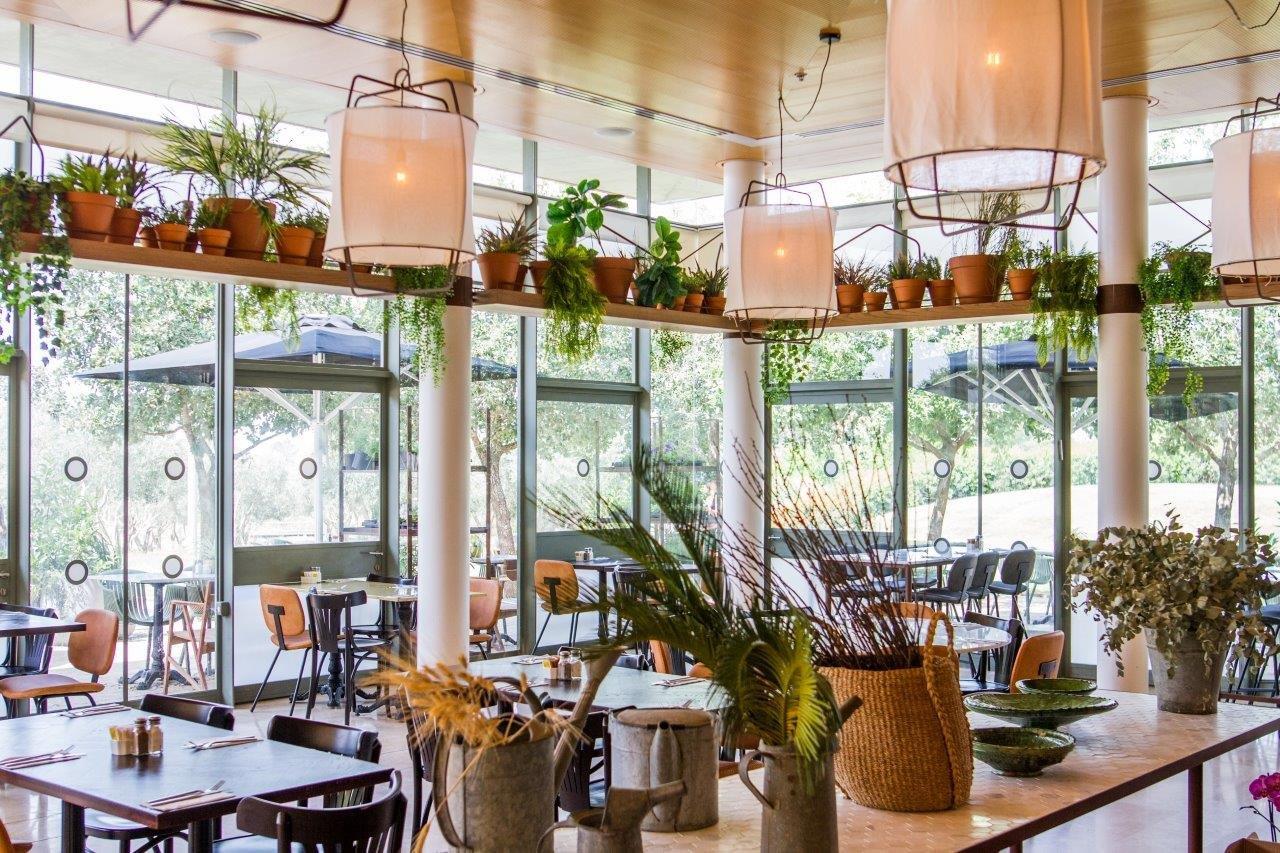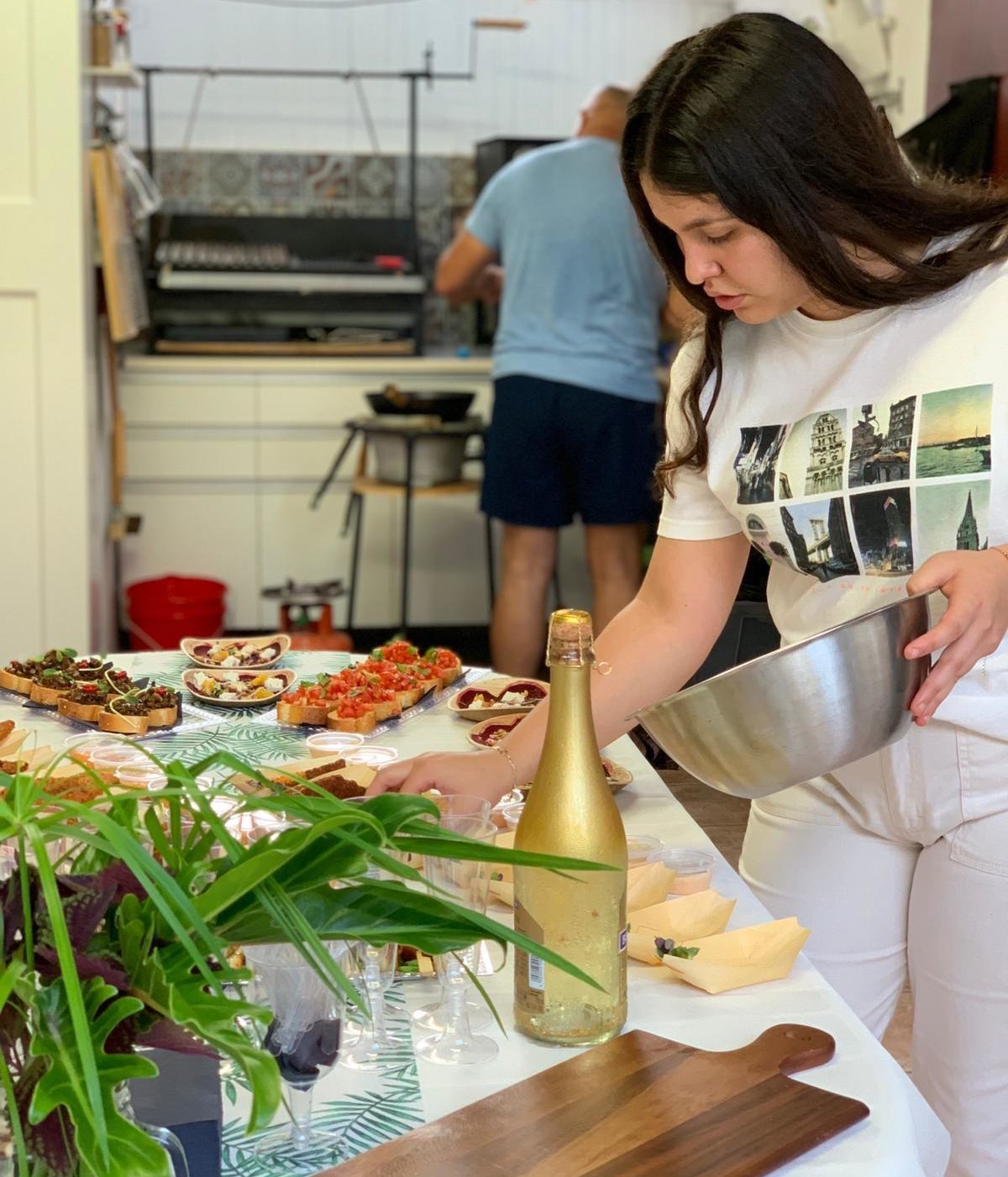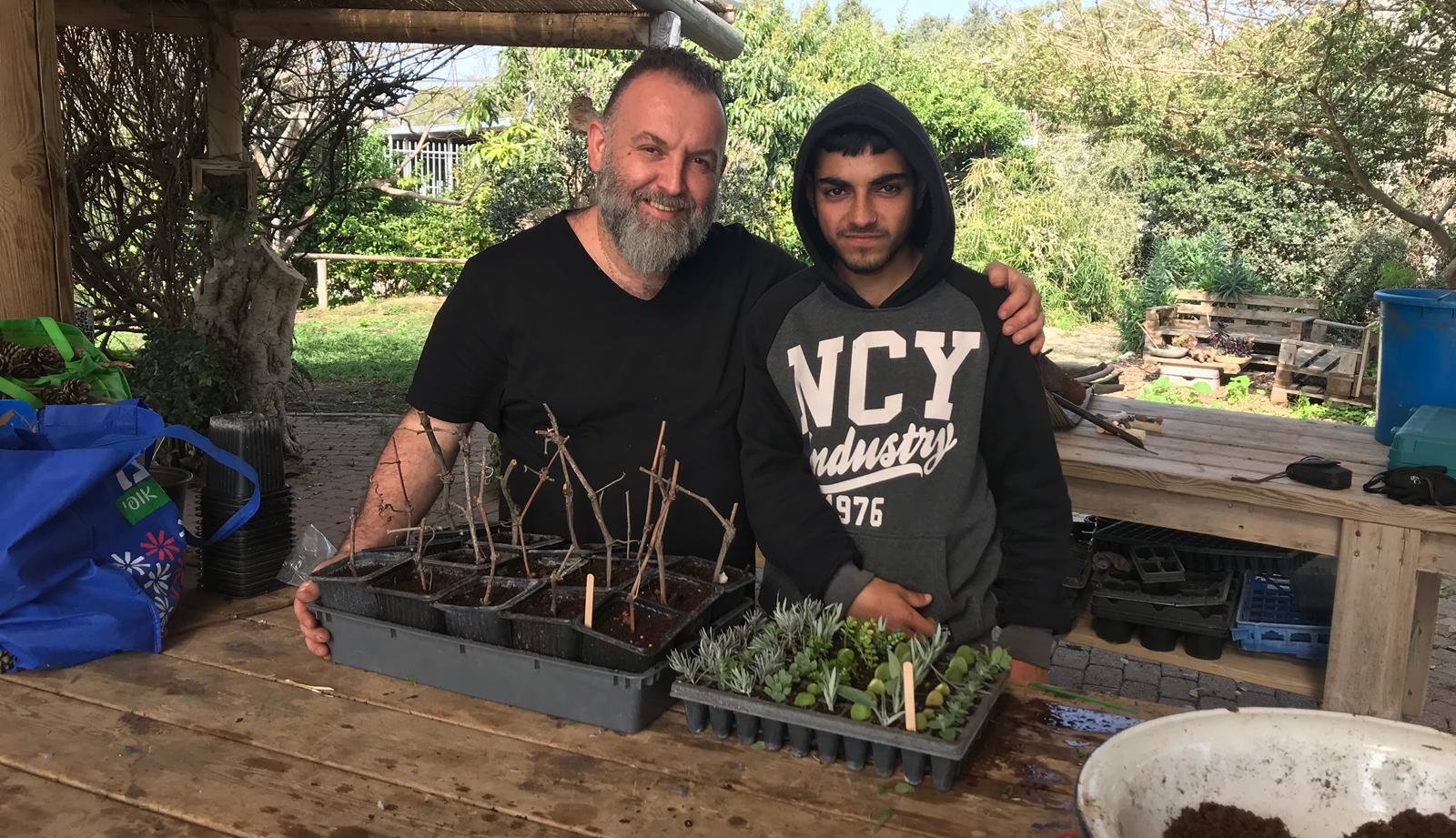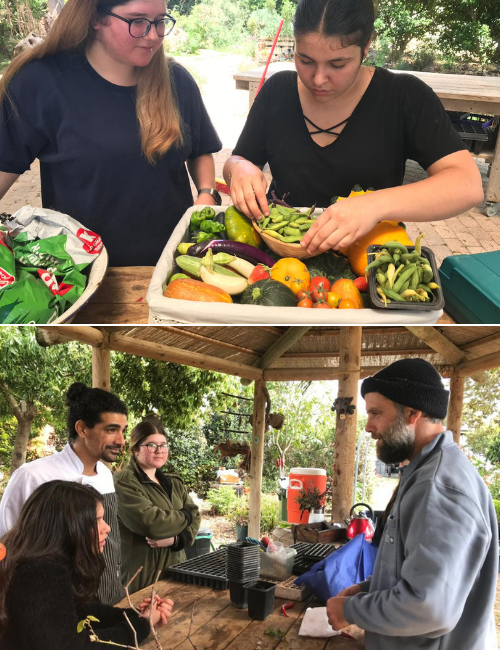When Culinary Quality Meets Values
Something good is happening at “Mata’im” at Ramat Hanadiv, and it’s not only great food
 News and Events
News and Events
Something good is happening at “Mata’im” at Ramat Hanadiv, and it’s not only great food

When Noam Tati celebrated her 18th birthday, she decided to prepare a complete meal for her family in the “Mata’im” style. Her family enjoyed the dishes she prepared, and for the first time, after many years, Noam had a successful and meaningful experience that filled her with pride. Within just nine months Tati became a professional cook who can join the workforce and offer her skills to businesses in the culinary industry. Noam is a graduate of a unique programme for young adults, which operates at “Mata’im” Restaurant at Ramat Hanadiv.
Noam is a graduate of a unique programme for young adults, which operates at “Mata’im” Restaurant at Ramat Hanadiv. Few of us know that when we eat and enjoy ourselves at “Mata’im” at Ramat Hanadiv, we are actually also taking part in a social initiative that assists at-risk young adults.
The restaurant, which is known for its culinary quality and is located in the most magical place in the region, has been a partner, since its establishment, in a social initiative that aims to train young adults, who have dropped out of the education system, in the cooking and hospitality profession. Within the framework of this initiative, 15 young adults are employed at “Mata’im” each year. Alongside professional training, they receive guidance and intense social therapy as well as daily support, which equip them with practical tools for coping with the working world. The initiative is a partnership between “Mata’im”, Ramat Hanadiv and Dualis Social Investment Fund, which creates investments in social businesses that employ people from underserved populations.

Practical tools and feelings of capability
“It all began nine months ago”, relates Tati, “through the Hila project, the school I attended, I was chosen to take part in the project at “Matai’m”. Despite all the challenges along the way, and there were plenty, I didn’t give up, thanks to the people surrounding me. As soon as we arrived I entered the kitchen and immediately connected, especially to the “hot strip” where I received professional training that helped me understand that I’m good at what I do. I learned to work under pressure, to meet customer demands, and how this world actually works. I found a home that was my family in times of need, always there to hug, take an interest and show concern, and in parallel, I completed my studies.”
Ruth Bimka, the project manager at Ramat Hanadiv, looks at a photo that Noam sent her from the birthday and her face lights up like a proud mother. “It’s so clear to me that this wonderful girl will be successful out there,” she says. Bimka receives the young men and women and guides them throughout the training process: “the aim is that they will set out into the world with practical tools and employment capabilities so that they can support themselves independently and confidently,” adds Bimka.
These are young men and women who have dropped out of regular educational frameworks, and through the Hila project, on behalf of the welfare departments of the local councils, they study twice a week and work on the other days. Most of them work in the restaurant, while two work in horticulture and garden maintenance. The project lasts for nine months, but there are those who lengthen their stay to 18 months, according to their desires and needs. They undergo a comprehensive training process covering all aspects of work in the kitchen. They are an integral part of the staff.
“Here they undergo a process of apprenticeship and maturation. From closed-off and scared young men and women, they become an integral part of the staff. No outsider could distinguish between those who are part of the project and those who are not,” relates Bimka.

To be a partner and watch the progress of the young adults who come here gives me great satisfaction. There are those who underwent great changes here and today serve as excellent cooks in professional kitchens.


There are also difficulties and challenges
There are also many challenges in the project, for professionals and young adults alike. Work in a restaurant kitchen is not easy and demands much discipline and responsibility; throughout the process all of those involved cope with ups and downs. Eli Goldenberg, the chef at “Mata’im”, and the one who is directly responsible for training and employing the young adults, shares some of the challenges and complexities of the project: “Many times I need to cope with situations that, as a chef, I was not exposed to in the past. For example, fluctuations in the young adults’ moods that affect their functioning at work, poor discipline and difficulties accepting authority from professionals in the kitchen. These young adults have a severe lack of self-discipline and can be late for work with excuses ranging from “I didn’t wake up” to “I’m bored, it’s hard and I want to go home”.”
So why do you need this headache as a chef? Isn’t it easier just to work with professional employees?
“I’m fortunate to have been given the opportunity to be a major partner in this wonderful project!” he answers, “I had no idea what I was getting myself into when I got the job. It is definitely not easy, but to be a partner and watch the progress of the young adults who come here gives me great satisfaction. There are youngsters who experienced and experience anxiety at many different levels when they arrive; to see them open up to their surroundings and cope as equals with “problems” that in the past they gave up on gives us great satisfaction and pride and the understanding that we are doing something good here. There are those who underwent great changes here and today serve as excellent cooks in professional kitchens.” However, it turns out that as much as he teaches and trains the young adults, Goldberg admits that he also learns a lot from working with them. “I learn about myself and develop additional traits that I didn’t have before. For example, to identify situations of distress and to try to help them, to listen to all their difficulties, to be patient and tolerant of non-routine situations and mainly – to stop being right and to start being wise.”

However, it turns out that as much as he teaches and trains the young adults, Goldberg admits that he also learns a lot from working with them. “I learn about myself and develop additional traits that I didn’t have before. For example, to identify situations of distress and to try to help them, to listen to all their difficulties, to be patient and tolerant of non-routine situations and mainly – to stop being right and to start being wise.”
In addition to professional guidance and training, the group comes to Ramat Hanadiv’s horticultural therapy centre once a fortnight. There they are allocated a garden bed where they grow special vegetables from which to prepare unique dishes in the restaurant. “On one hand, we serve as a kind of ‘acclimation incubator’ for the outside world,” says Bimka, “and on the other hand, the work in the kitchen is very difficult and demanding, and requires functioning under pressure and a lot of perseverance, so this experience strengthens the young adults for the working world.”
Lidor Azar completed a term of 18 months in the project and already works as a cook elsewhere: “Over a period of one and half years I changed from one extreme to the other. I had personal conversations, a social framework and a strong attraction to the cooking profession. For me, Mata’im is a place to move forward; a framework that is not school, with amazing people who do everything from the heart and with much love. For me this was an amazing experience and I highly recommend to every child to have this experience, change their life perspective and acquire maturity and personal responsibility.”
In summary, we’ll go back to Noam Tati, who recently turned 18. “I love the kitchen and I would be more than happy to continue and succeed in this field,” she says. We believe her, wish her much success and will remember her name well. Because who knows, maybe in a few years we’ll sit down to eat in her restaurant.
Did you like it? Join our free mailing list to receive monthly news and updates about activities for the whole family. Register here.
Any question? We will be glad to help